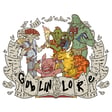
Episode 191: Magic Metaphysics
Hello Podwalkers welcome back to the show !! This week Taya, Alex and returning guest Reinhardt are covering a melthos topic again, this time talking about how some of the real world game mechanics of Magic exist in the fictional universe, and how the citizens of that universe may or may not understand them or even be aware of them!
Again we would like to state that Black Lives Matter
We also are proud to have partnered with Grinding Coffee Co a black, LGBT+ affiliated and owned, coffee business that is aimed at providing coffee to gamers. You can read more about their mission here. You can use our partner code for discounted coffee!
We also finally have a Linktree with all of our discounts/resources
____________________________________________
If you’re thinking about suicide or just need someone to talk to right now, you can get support from any of the resources below.
- National Suicide Prevention Lifeline: 988
- Veteran's can Press 1 at anytime to be taken to the Veteran's Line
- Crisis Text Line: Text HOME to 741-741
- International suicide hotlines: A comprehensive resource list for people outside the US.
- IMAlive: Click Chat Now to access a live online network of volunteers through instant messaging.
- TrevorLifeline, TrevorChat, and TrevorText (LGBTQ+ crisis support): 1-866-488-7386, or text “Trevor” to 1-202-304-1200
- Trans Lifeline (US): (877) 565-8860
____________________________________________
Opening and closing music by Wintergatan (@wintergatan). Logo art by Steven Raffael (@SteveRaffle)
Goblin Lore is proud to be presented by Hipsters of the Coast, and a part of their growing Vorthos content – as well as Magic content of all kinds. Check them out at hipstersofthecoast.com
